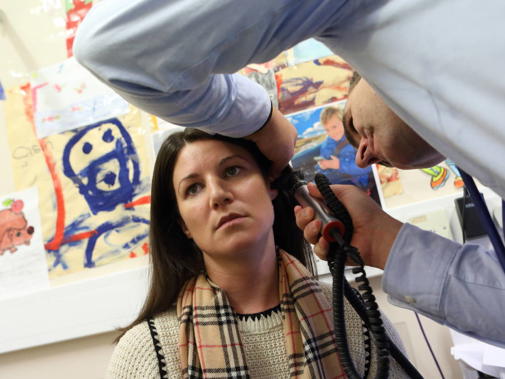GPs in England have voted to re-enter dispute with Government over concerns that unlimited online consultation requests could become a ‘critical patient safety issue’.
Members of the BMA GPs committee for England voted in favour of re-entering the dispute owing to ‘a lot of confusion and anger’ about the regulatory changes, which are due to come into effect from 1 October.
The changes were intended to free up GP phone lines to ‘end the 8am scramble’ but GPCE says the proposals will instead ‘open the floodgates’ to unmet need and inadvertently make access for patients more difficult.
As well as online consultation requests requirements also include how external third parties can enter data into confidential GP patient records, and how patients may submit unlimited online consultation requests from between 8am and 6.30pm with no increased numbers of practice staff to handle the amount of unmet need.
GPCE, which has issued repeated warnings about the proposed changes, says members are ‘anxious’ that unlimited online consultation requests mean potentially urgent requests may be missed in trying to determine the important ‘needles’ from within the unlimited ‘haystack’ of unmet need.
Patient safety
GPCE said its paramount concern is patient safety, staff wellbeing and workforce retention, to be able to meet the needs of their patients.
The committee has called for the changes to instead be brought in once the agreed safeguards are in place, building on existing platforms to create the functionality to separate urgent from non-urgent patient requests and to keep the GP patient record safe.
It also wants practices to have the ability to divert online consultation requests safely to telephone and walk-in options instead if they are overwhelmed with online volume.
The committee says the Department for Health and Social Care, and NHS England, have ‘ignored’ their safety concerns, despite acknowledging and agreeing that safeguards needed to be in place before these changes are implemented.
GPCE said it has made the same consistent and repeated requests for its concerns to be addressed with safeguards, without which patients could be left at ‘considerable risk’, since January.
 BRAMALL: Still time for Government to act
BRAMALL: Still time for Government to act
GPCE chair Katie Bramall said: ‘Imposing such changes on general practice, ignoring our repeated warnings, will do the opposite of "bringing back the family doctor".
‘But all is not lost – we still have time for Government to act and meet us halfway.
‘We’re exploring all our options right now. Hopefully we can find a resolution before we take it any further. I want to work with the Government and deliver an NHS that we can be even more proud of.’
Next steps in the re-opened dispute could include taking legal action to ensure that the most harmful aspects of the Government’s policy are reversed, though GPCE says the Government could avoid this by providing the relevant safeguards and clarity asked for.
There has been additional disquiet from GPs around the novel contract structures for GP practices recommended in the Government’s flagship 10-Year Health Plan, which have been seen to have diluted the Government’s original written promise from March to agree a new GP practice contract.
GPCE entered dispute with the Conservative Government in March 2024, following the rejection of the 2025/26 general medical services contract changes by more than 99 per cent of members. The dispute was paused after an agreement was reached with the Labour Government. The development comes as new research from the Health Foundation found that the public’s top priority for the NHS is making it easier to get appointments at GP practices.
In a recent survey of grassroots doctors about the details in the 10-Year Health Plan, some 77 per cent of GP respondents said it would lead to a decrease in the continuity of patient care and more than 80 per cent said it would decrease the independence of general practice.

